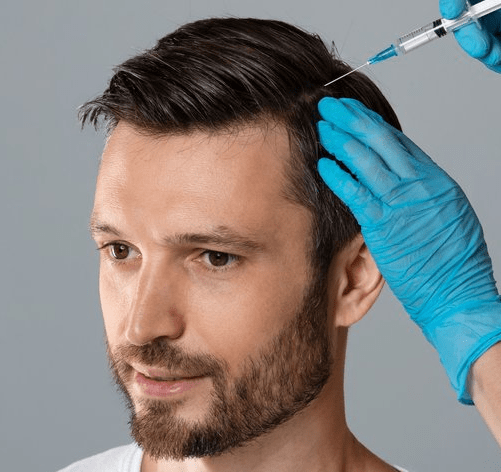Choosing to undergo a tummy tuck (abdominoplasty) in South Korea is an exciting step toward achieving a flatter, firmer abdomen and renewed confidence. Korean clinics are renowned for advanced surgical techniques, exceptional care, and support for international patients. But to ensure your tummy tuck experience is smooth and successful, proper preparation is key.
This guide breaks down everything you need to know to prepare effectively for tummy tuck surgery in Korea, from medical readiness and travel tips to post-op planning.
1. Schedule Your Consultation and Pre-Op Assessments Early
Before your surgery date:
- Book a consultation with a qualified Korean plastic surgeon who specializes in tummy tucks.
- Discuss your goals, medical history, and any medications or supplements you take.
- Request any necessary preoperative lab tests (bloodwork, ECG, etc.) as advised.
- Arrange virtual consultations if traveling far in advance.
Tip: Many clinics offer coordinated packages including virtual consultations, so you can get assessed well before arriving in Korea.
2. Prepare Your Medical Documents
- Bring or have digital copies of your medical history, allergies, previous surgeries, and current medications.
- Include any records of weight loss, pregnancies, or abdominal surgeries (e.g., C-section).
- If you have chronic conditions like diabetes or hypertension, ensure they are well-managed before surgery.
Note: Korean clinics require these for safety and surgical planning.
3. Plan Your Travel and Accommodation Wisely
- Book your flight to South Korea allowing at least 3–4 days before surgery for pre-op checkups.
- Arrange accommodations near the clinic with a comfortable recovery environment. Some clinics partner with nearby hotels offering patient packages.
- Consider proximity to hospitals and transport options.
Pro tip: Choose accommodations with amenities such as elevator access, quiet surroundings, and easy food delivery services.
4. Arrange Support During Your Recovery
- Have a trusted friend, family member, or professional caregiver accompany you or be available to assist for at least the first few days post-surgery.
- International patients often opt for specialized recovery care services that help with wound care, mobility, and daily tasks.
Important: Tummy tuck recovery involves limited mobility initially, so support is critical.
5. Follow Pre-Operative Instructions from Your Surgeon
- Stop smoking and avoid alcohol at least 2–4 weeks before surgery to reduce risks of complications and promote healing.
- Avoid medications that thin blood (aspirin, ibuprofen) unless approved by your surgeon.
- Follow any dietary restrictions or fasting requirements on the day before surgery.
- Shower using antibacterial soap the night before and the morning of surgery to reduce infection risk.
6. Pack Smart for Your Surgery and Recovery
Bring the following essentials:
- Loose, comfortable clothing that is easy to put on and take off (front-opening shirts preferred).
- Compression garments as recommended by your surgeon (some clinics provide these).
- Medical records, passport, visa, and clinic contact info.
- Basic hygiene items and wound care supplies if not provided.
- Phone charger, entertainment, and snacks approved for post-op diet.
7. Understand What to Expect on Surgery Day
- Arrive at the clinic/hospital early for pre-op preparations.
- Bring a list of any allergies or medications to inform the medical team.
- The surgery is typically performed under general anesthesia and lasts 2–4 hours depending on the procedure type.
- Arrange transport home or to your accommodation with someone else driving you.
8. Prepare for Post-Operative Care and Restrictions
- Expect swelling, bruising, and mild discomfort for several weeks.
- Wear compression garments continuously as directed to reduce swelling and support healing.
- Avoid heavy lifting, strenuous exercise, and bending for 4–6 weeks.
- Attend all scheduled follow-up appointments for wound checks and progress monitoring.
- Korean clinics often offer scar management treatments, such as laser therapy or microneedling, to optimize healing.
9. Plan Your Return Home Thoughtfully
- Most international patients stay in Korea 2–3 weeks post-surgery to ensure safe initial healing and to handle any complications immediately.
- Coordinate with your clinic about when it’s safe to fly back, as long flights can increase blood clot risks early after surgery.
- Ask for detailed post-op care instructions to follow once you return home.
10. Maintain a Healthy Lifestyle for Long-Term Results
- Follow your surgeon’s advice on diet and exercise after full recovery.
- Maintain stable weight to preserve tummy tuck results.
- Attend regular check-ups if recommended.
Bonus Tips for Medical Tourists Getting a Tummy Tuck in Korea
- Language: Use a clinic with English-speaking coordinators or translators to ensure clear communication.
- Insurance: Check your travel and health insurance policies to understand coverage for surgery abroad.
- Packages: Look for all-inclusive packages that cover surgery, accommodation, transport, and post-op care to simplify planning.
- Reviews: Read patient testimonials and view before/after photos to set realistic expectations.
Summary
Preparing for a tummy tuck in Korea involves medical, logistical, and emotional readiness. By scheduling early consultations, arranging your travel and recovery support, following pre-op instructions carefully, and understanding post-op care, you can maximize safety and satisfaction with your surgery.
If you want personalized recommendations for trusted Korean clinics and recovery hotels, or help with pre-surgery planning, just ask!




